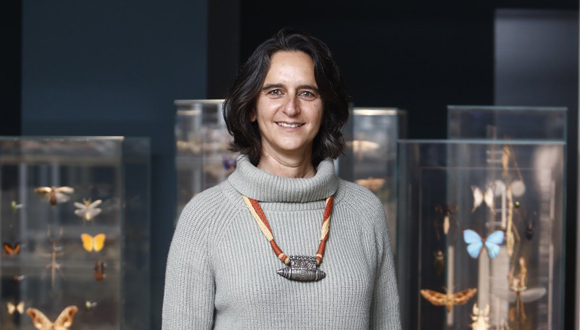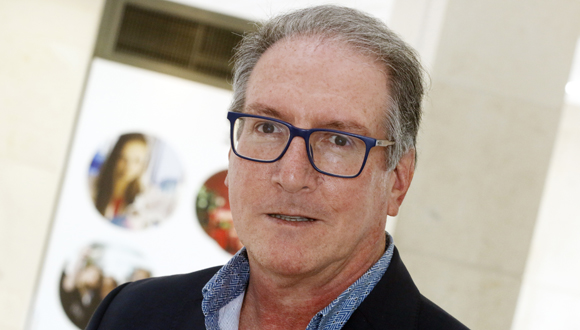Tel Aviv University launches first-of-its-kind multidisciplinary research hub on climate change.
Tel Aviv University last week launched the multidisciplinary Center for Climate Change Action, with the aim of finding solutions to the global crisis. The new Center, the first of its kind in Israel, will operate under the auspices of the Porter School of the Environment and Earth Sciences, and will investigate the subject from all angles, drawing on the knowledge and resources of all faculties on campus. The Center will collaborate with partners from industry, academia and government, in Israel and abroad, in an effort to develop technological solutions, raise public awareness, promote environmental legislation and policy, and more.
The initiative was launched by researchers from various disciplines, among them Prof. Colin Price and Dr. Orli Ronen from the University’s Department of Environmental Studies, Prof. Marcelo Sternberg from the School of Plant Sciences and Food Security, Prof. Dan Rabinowitz from the Gershon H. Gordon Faculty of Social Sciences and others.
Scores of students, faculty, researchers, dignitaries and guests attended the festive event marking the Center’s launch, which took place in the award-winning Porter School building overlooking the Tel Aviv skyline.
Israel’s outgoing President, Reuven Rivlin, lauded the University’s new initiative as a significant demonstration of institutional action on the global climate crisis. “The need to address the climate crisis isn’t a luxury, it’s an inevitability,” he said in recorded remarks, noting the dire need for immediate change for benefit in this lifetime and for generations to come.
Mobilizing for Change
Ahead of the Center’s launch, TAU President Prof. Ariel Porat stated: “Tel Aviv University is a committed partner in dealing with the dangers of global warming and climate change. Confronting this challenge requires examination from many perspectives: technological, social, moral, economic, sociological, legal, and more.”
Tel Aviv-Yafo Municipality also endorses the project. Tel Aviv, listed among the world’s greenest cities, launched its climate change preparedness plan about a year ago as it realized long ago that being able to live here in the future requires action today. Deputy Mayor of Tel Aviv, Reuven Lediansky, hailed the launch of the Center and spoke about the University’s role in writing the municipal plan for dealing with the crisis. “The [municipal] program positioned us among big cities in the world, such as Berlin, Amsterdam, New York and Paris, that have all been working resolutely for some time in order to influence and prepare to handle the climate crisis. I am proud of the long and thorough professional process led by the Environmental Protection Authority, with the professional assistance of Dr. Orli Ronen to formulate such a comprehensive and professional plan. Parts of the program have already been incorporated in the municipality’s work plan for 2021.”
Prof. Noga Kronfeld-Schor, Chief Scientist of the Ministry of Environmental Protection and researcher from the School of Zoology at The George S. Wise Faculty of Life Sciences, called for action: “The third decade of this century is characterized by the understanding that in order for us and our children to lead healthy and equal lives, we need to take nature into consideration, and we need to protect it. Global warming is threatening the life on our planet. The consequences are complex and we are only starting to grasp them. Extensive research is required. We need to develop the ability to predict the broad effects of rising temperatures, ecologically, economically and socially, in order to develop ways and means to deal with them if possible.”

Prof. Noga Kronfeld-Shor used the platform to call for action (photo: Yael Tzur)
Too Little Water for Too Many People
Prof. Hadas Mamane, Head of the Environmental Engineering Program at The Iby and Aladar Fleischman Faculty of Engineering, discussed the predicted imbalance between the amount of rain fall and clean drinking water due to the climate crisis and offered creative ways to address the problem. She emphasized the expected increase in the world’s population, which corresponded well with insights from Prof. Tal Alon from The Department of Public Policy at the Gershon H. Gordon Faculty of Social Sciences, who pointed to the close link between demographic stability and the successful handling of the climate crisis where greenhouse gas emissions are concerned.
Dr. Dov Khenin, Head of the Parliamentary Clinic of The Buchmann Faculty of Law, discussed the ‘Change of Direction’ program, aimed at decision-makers and intended to promote rapid change of direction in the State of Israel’s approach to the climate crisis.
Prof. Shoshi Shiloh from The School of Psychological Sciences, discussed how to leverage the worrying environmental situation so that it stimulates us to act. Is instilling fear the way to go when confronting a problem of this magnitude, or are there more efficient approaches?
Prof. Avi Kribus from the School of Mechanical Engineering presented renewable energy solutions that are particularly suitable for Israel, allowing us to make use of the resources that we have plenty of, such as solar energy.
The Green Revolution in the Naftali Building
Prof. Itai Sened, Dean of the Faculty of Social Sciences, presented a practical plan for transforming the Naftali Building to become the greenest building on campus.
Lior Hazan, Chair of the Student Union of Tel Aviv University also spoke at the event, calling on her fellow students to take an active part in mobilizing as ambassadors for environmental change.
Head of the Climate Center and the University’s Department of Environmental Studies Prof. Price concluded the meeting alluding to the Center’s unique position for driving change: “We have expertise and brainpower from nine faculties, and in each of those faculties there are people dealing with the climate issue. We also have non-university organizations, partners who wish to work with us. We need to start by influencing the behavior of the general public. We can demonstrate to the government that it is financially worthwhile to switch to renewable energy. However, we need to do both to succeed.”

Head of the Climate Center Prof. Colin Price gave the closing remarks at the event (photo: Noam Wind)
